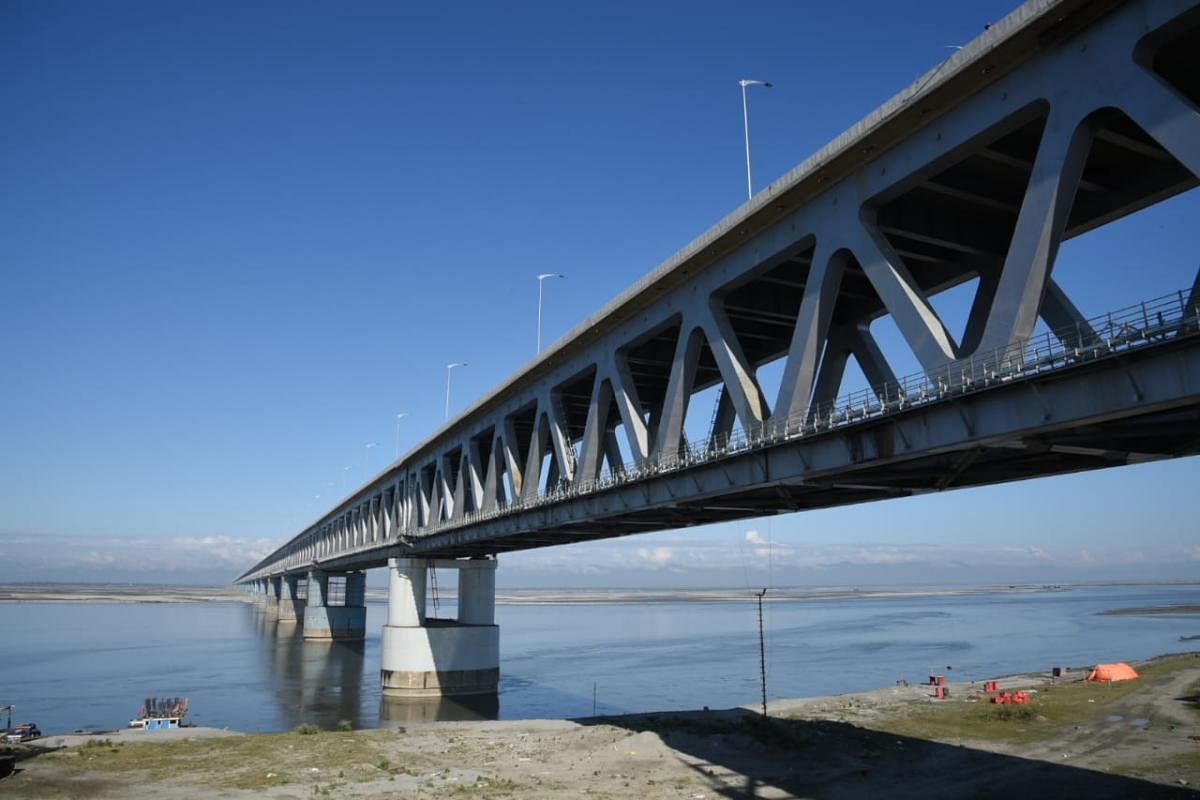
Former Prime Minister Rajiv Gandhi had promised it in the Assam Accord of 1985, H D Deve Gowda laid its foundation 21 years ago, Atal Bihari Vajpayee inaugurated its work and Manmohan Singh declared it a 'national project' in 2007.
Bogibeel bridge, the country’s longest rail-cum-road bridge over the Brahmaputra in Assam will finally be inaugurated on Tuesday.
Prime Minister Narendra Modi will inaugurate the 4.94-km-long bridge, which will connect the north and south banks of the Brahmaputra, between Dhemaji and Dibrugarh in upper Assam.
The bridge, one of the technically challenging projects of the Indian Railways, is set to boost security infrastructure along the Sino-Indian border in Arunachal Pradesh as the road distance between Dibrugarh and Itanagar in neighbouring Arunachal Pradesh will be reduced by 150 km.
Chief public relations officer of Northeast Frontier Railways (NFR), Pranav Jyoti Sharma told DH on Sunday that it would also reduce the rail travel distance between Dibrugarh in eastern Assam and New Delhi by 170 km.
“It will enhance the national security of the eastern region by facilitating swift movement of defence forces and their equipment. The remote districts of Anjaw, Changlang, Lohit, Lower Dibang Valley, Dibang Valley and Tirap of Arunachal Pradesh will be greatly benefited. This will provide an alternate and shorter route from Dibrugarh through the north bank of the Brahmaputra with Delhi and Kolkata via Rangiya,” Sharma said. It will connect NH-37 in the south bank with NH-52 in the north bank of the Brahmaputra.
Bogibeel bridge was one of the promises in the Assam Accord of 1985, which was signed following the six-year-long anti-foreigners movement. Work for its construction remained shut for at least 12 years till it was declared a national project in 2007. It missed at least six deadlines and the project cost had to be revised from Rs 3,230.02 crore to Rs 4,857 crore.
The bridge has 42 wells, each 2.2-metre-thick and the girder has a steel floor system for railway tracks and concrete for the road.
The design of the composite-welded truss has been done by M/s Ram Boll, Denmark through RITES Ltd (earlier known as Rail India Technical and Economic Service) and the proof-check was done by M/s Anwikar Consultant, Germany.